FATHER OF THE MODERN HEBREW LANGUAGE: PART 6ELIEZER BEN YEHUDA'S DESTINYTWO STEPS FORWARD, ONE STEP BACK
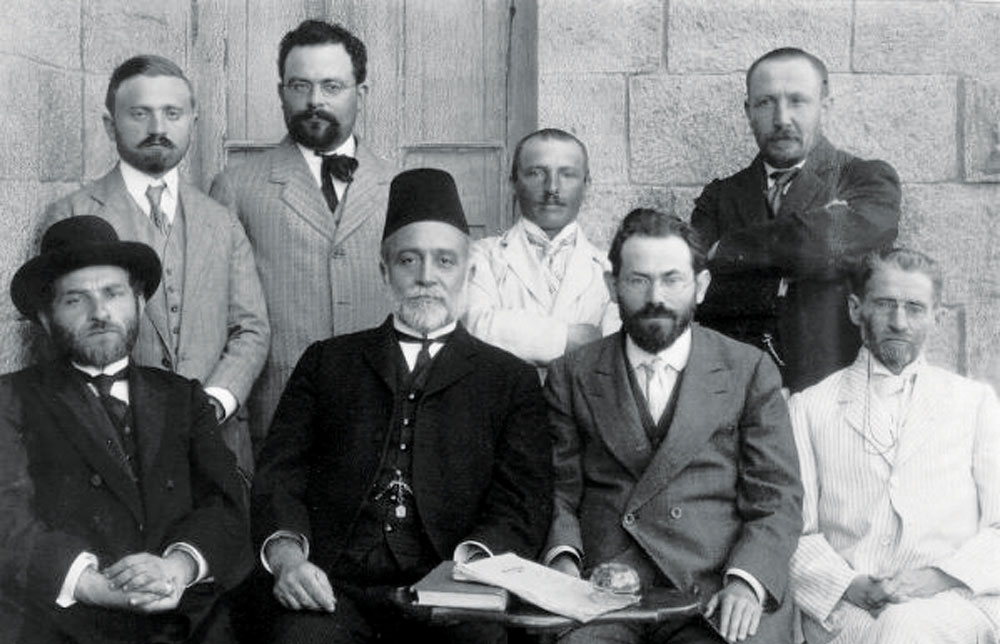
Eliezer Ben Yehuda foresaw the need for a committee which would oversee the nascent modern Hebrew language, as thousands of words would constantly be added to the limited vocabulary of the early 1900’s. Also this committee would have to determine correct pronunciation, as the few thousands Hebrew-speaking Jews of Palestine came from different countries and therefore many different accents. Ben Yehuda established “The Hebrew Language Council” in 1912, which became the Academy of Hebrew Language in 1953, and is today the supreme institution for scholarship on the Hebrew Language.
When Theodore Herzl, considered the Father of Modern Israel, died in 1904, Eliezer Ben Yehuda went into deep mourning. Although Ben Yehuda had dreamed and worked for a Jewish state nearly 25 years before Herzl appeared on the Zionist horizon, Herzl was his leader—the man who could lead the Jewish people back to their homeland.
Yes, in 1878, Eliezer had written his first passionate appeal “A Burning Question,” calling the Jewish people in the diaspora to come home. But not only were the Jews dispersed; in many ways they were hardly a people group. They spoke countless languages and dialects, were scattered around the world, and many Jewish leaders of the 19th century strongly advocated that all Jews simply assimilate where they lived to avoid more persecution.
It was Herzl who made the clarion call in 1896 that resounded around the world. He warned there was no other solution to prevent the extinction of his people except to return to their ancient homeland. But even Herzl laughed off Ben Yehuda’s burning passion to resurrect the Hebrew language as a catalyst to help create a new nation. For Herzl, resurrecting a dead language was simply so far off the radar of possibility that he was convinced the best language for a new Jewish state would be German.
As Eliezer reflected upon the death of Herzl, he pondered his own situation. He realized that in the last quarter of a century, he had actually accomplished very little, except that he and his second wife and six of his 11 children were alive. They did all speak fluent Hebrew. But the truth was, there were only a few hundred fluent Hebrew speakers in all the land of Israel.
HE KNEW HE HAD FAILED
Eliezer lost all hope. His wife Hemda actually caught him preparing to burn up the entire manuscript for the first volume of his Hebrew Dictionary! She screamed and he dropped the box of matches.
Today we would call it a nervous breakdown. He told Hemda, “I know now I have made a mistake ever trying to do it [resurrect Hebrew]. If it were not a mistake, the opposition would not have been so great.” He wanted to die.
“But what about the great heritage you would be leaving in creating the first Hebrew dictionary in the world? What about the work you have been doing since you came to Israel?” Hemda shouted.
“What is life worth if I cannot serve my people?” he responded. “They refuse to be served! What is the Hebrew language for if no one wants it? What is a dictionary for? Who will use it?”
And, besides all the disappointments of so few people understanding the existential necessity for the Hebrew language to unite his people, the Ben Yehuda family was deeply in debt, with no foreseeable way to pay their anxious creditors.
HEMDA GOES ITINERATING
Out of that conversation, Hemda decided to leave for Europe and search for benefactors to sponsor the publishing of Volume One of the Ben Yehuda dictionary. She had very little money, and she was quite aware that interest in the Hebrew language becoming a spoken tongue in Israel was minuscule. But the woman was brilliant. First she visited Budapest where she met with a famed Orientalist scholar with whom Eliezer had been in correspondence.
The professor and three of his colleagues spent a week looking over the manuscript. Their verdict? “Ben Yehuda was making the most important contribution of his generation to the science of languages.” Now she had a perspective that no one had considered—scientific value.
With those recommendations, she landed an appointment in Berlin with the famed Langenscheidtsche Verlagsbuchhandlung, a long-established house specializing in publishing dictionaries. This prominent house agreed that if Ben Yehuda would provide the typesetting, they would take on the project. (Famed though they were, they obviously didn’t have a Hebrew typesetter.)
However, Hemda would have to raise the money for publication. She traversed Europe, knocking on doors of wealthy Jewish professors and businessmen. She was an attractive lady, in her mid-30’s. Even more so, she was convincing and determined. After four and a half months, she succeeded in raising the equivalent of $2,000—enough for Volume One.
HIS PASSION RENEWED
When Ben Yehuda received a telegram of success from Hemda, he sent back this reply: “Is this reality, or shall I awaken to find that I have been dreaming?” On his fiftieth birthday, he began typesetting Volume One of his dictionary. And now he worked with renewed fire in his soul.
When every new volume was ready, crisscrossing Europe, supplicating and imploring for financial aid became their routine. Hemda had to leave the children with her mother-in-law for months at a time. Sometimes, she traveled alone. Sometimes with Eliezer, who settled in at the closest library for more Hebrew roots in dusty archives while Hemda hunted for contributors. Truthfully, she grew weary of this need of being a one-woman, self-perpetuating fundraising organization. But she accepted it as her role in life.
Very slowly, a few settlements in central Israel began to earnestly teach Hebrew in their local schools. With great satisfaction, Ben Yehuda watched a number of pioneer families painstakingly train their children in the Hebrew language. But then, to his consternation, they would send them off to college in Europe. Sure enough, few young natives of Palestine ever returned.
BEN ZION IS SENT TO EUROPEAN UNIVERSITY
Ben Yehuda took the chance with his own eldest son and sent him to a European university, convinced that his “first Hebrew child” was so deeply wedded to the language and land of Israel he would be back. And that is what happened. He returned at 25 years old a thoroughly experienced journalist and took over Ben Yehuda’s newspaper, developing it into a daily, called The Light. The journalism and the dictionary were the two strongest enterprises that gave Ben Yehuda the momentum to raise Hebrew from its 1800-year sleep.
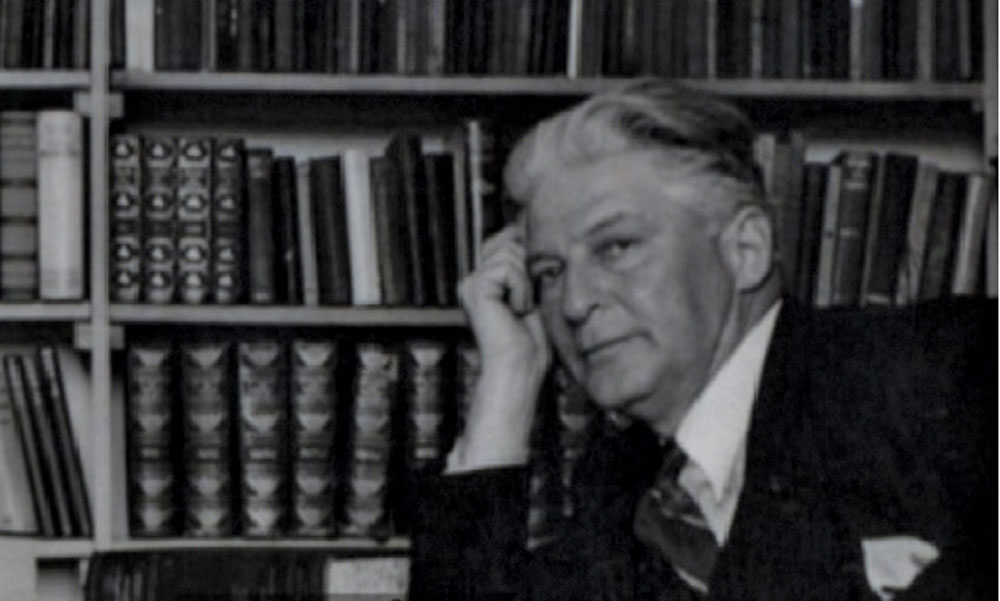
Eliezer and his first wife’s first born, Ben Zion, became the “first Hebrew child” (speaking Hebrew as his first language). He became a known journalist and owner of several Hebrew newspapers, following in his father’s footsteps. He eventually changed his name to Itamar Ben Avi.
CHANGES IN THE AIR
As we have mentioned, Theodore Herzl, who died in 1904, had no interest in the Hebrew language, to Ben Yehuda’s great sorrow. But seven years later, the new president of the World Zionist Congress was none other than Professor Otto Warburg, a very wealthy and brilliant scholar who financially made it possible for Ben Yehuda to publish Volume Three of his Hebrew Dictionary!
Secondly, in 1908, the Young Turks Revolution brought a new liberty to write freely about Zionism in Palestine. However, with this new freedom of speech, Hebrew newspapers were popping up everywhere, much to Ben Zion’s dismay! But Ben Yehuda told his son that every progressive step to help Jews in the Land of Israel speak and read Hebrew was definitely beneficial for the Jewish community.
Ben Yehuda didn’t have a jealous bone in his body—one of the most amazing characteristics of his genius. Every new effort by any Jew to promote any form of cultural or economic advancement towards creating a Jewish nation was backed and vigorously supported with every fiber of Eliezer’s being.
ART ARRIVES IN JERUSALEM
One day Boris Schatz, an attractive young man from Bulgaria, appeared at the Ben Yehuda home. Schatz was a sculptor; he and his friend Efraim Lilien came to open a school of arts and crafts in Jerusalem. They envisaged the creation of a national style of art blending classical Jewish/Middle Eastern and European traditions—to create a Jewish art. He had brought with him ten other enthusiastic young Jews from Europe. Up until these young men (and one woman) arrived, there was no such thing as art in Jerusalem—or any other place in Israel.
Boris laid out his vision in a bad mixture of Russian, French and German. But Ben Yehuda sat for six hours transfixed, discussing the project with him. Ben Yehuda agreed to give it his full cooperation—on one condition: that the school would be taught completely in Hebrew! Schatz was shocked and explained that not one of them knew a word of Hebrew. So Ben Yehuda brought Schatz into his home and for six months virtually “locked him up inside his house,” teaching him and his artist friend Hebrew. The ten students were lodged in a Jewish school, as this was summer vacation. They slept on mattresses, and a communal kitchen was arranged with a teacher of Hebrew conducting classes and cooking for them. Hemda became the first secretary for the art school.
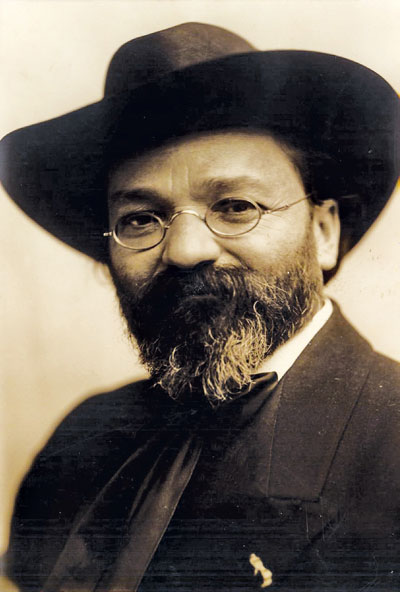
Boris Schatz, early pioneer and sculptor, founded in 1906 what later became the world famous Bezalel Academy of Arts and Design. Schatz named it after Bezalel who designed the Tent of Meeting for Moses.
The ultra-Orthodox were dismayed beyond measure for this invasion of such idolatry. On the other hand, the women of Jerusalem began buying pictures or needle work to place on the barren walls of their homes. Today, the Bezalel Academy of Arts and Design is a world-renowned institution.
Ben Yehuda helped young Jewish immigrants find work to survive, to attend Hebrew classes, and acquire new occupations so they could become farmers or start small businesses. Above all, he demanded they learn Hebrew! Soon many of these young zealots moved into the new settlements, making sure their children learned Hebrew at their new schools.
THE WAR OF THE LANGUAGES
As the Hebrew language slowly became more prominent, the tension between which language—German or Hebrew—would become the national language of the Jews of Palestine came to a head in 1912. There was an intense scholastic war as wealthy German Jews prepared to create a magnificent university in Haifa on one condition: that all subjects would be taught only in German.
But by now, there were a few thousand local Jews and their children who were already fluent in Hebrew, and they were determined that all schools teach at least some subjects in Hebrew. A delegation from the World Zionist Congress, which by now had caught the vision of the Hebrew language, pleaded that Eliezer pick up his pen and stir up opinion against the use of the German language in Israel. Even though Eliezer knew that contributions of wealthy German Jews were still sorely needed to continue publishing more volumes of his dictionary, he drew a line in the sand against German becoming the foremost language in the Land of Israel.
A nationwide strike of schools erupted with students burning their German textbooks. Of course, Ben Yehuda was in the middle of the fight, threatening that blood would flow. In fact, his home became general headquarters. Councils of war were held late into the night. Finally teachers and students took to the streets in a general strike shouting in Hebrew, “Down with the Germans,” and “Hebrew must live.”
Sure enough, the Germans threatened to discontinue the publishing of more volumes of Ben Yehuda’s dictionary. But there was no stopping the man. He directed the opening of “emergency” schools across the country with all instruction in Hebrew. In some, wooden boxes had to be used for seats. Slowly, the agitation diminished. German schools were reopened, but Hebrew was not dropped from the curriculum. Ben Yehuda, strangely refreshed, picked up his pen and went back to work on his dictionary. Hebrew reigned.
RELIEF FROM CONSTANT DEBT
It was time for Hemda to head off to Europe once more to raise money for the next volume. Eliezer decided to go with her. Again, he headed for the national libraries in each place and buried himself in ancient tomes that would yield new secrets of the beginning and continuation through the ages of the Hebrew language.
After visiting London, Hemda had enough funds to publish the fifth volume. Eliezer was full of excitement over his finds in the library at Oxford. A friend gave them first class tickets on a ship back to Egypt—the first time ever in their lives to enjoy such luxury.
It was a serene period in Eliezer’s life. For at least two more years they would not have to set out for Europe, hat in hand, for the next volume. The children were thrilled their mother wouldn’t be gone for months this time. Eliezer had placed a motto in front of his desk for many years that read: “The day is so short; the work to be done so great.” Now he changed his sign to: “My day is long; my work is blessed.”
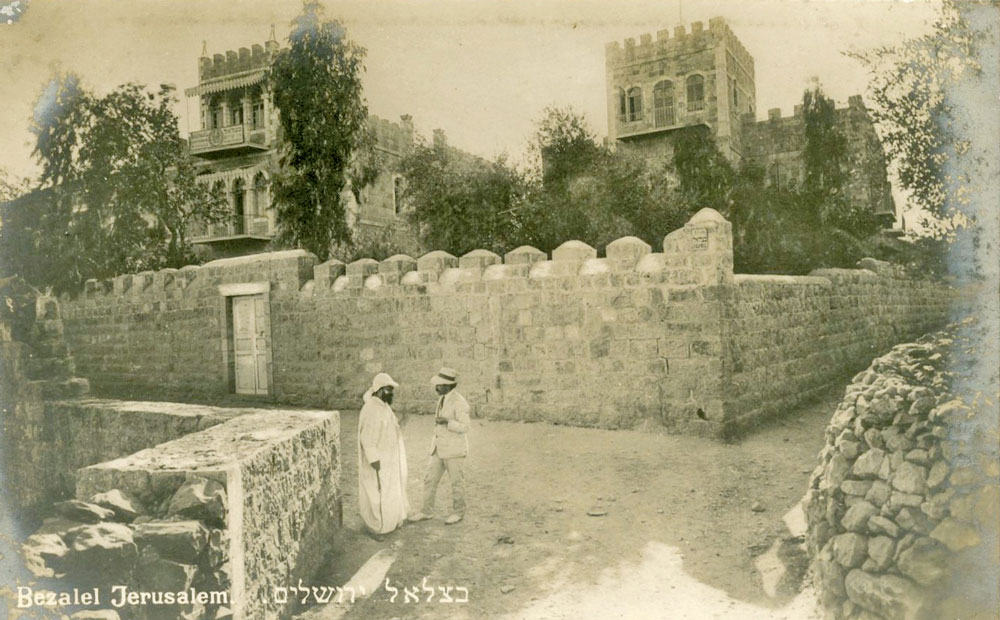
First Bezalel Campus, 1913
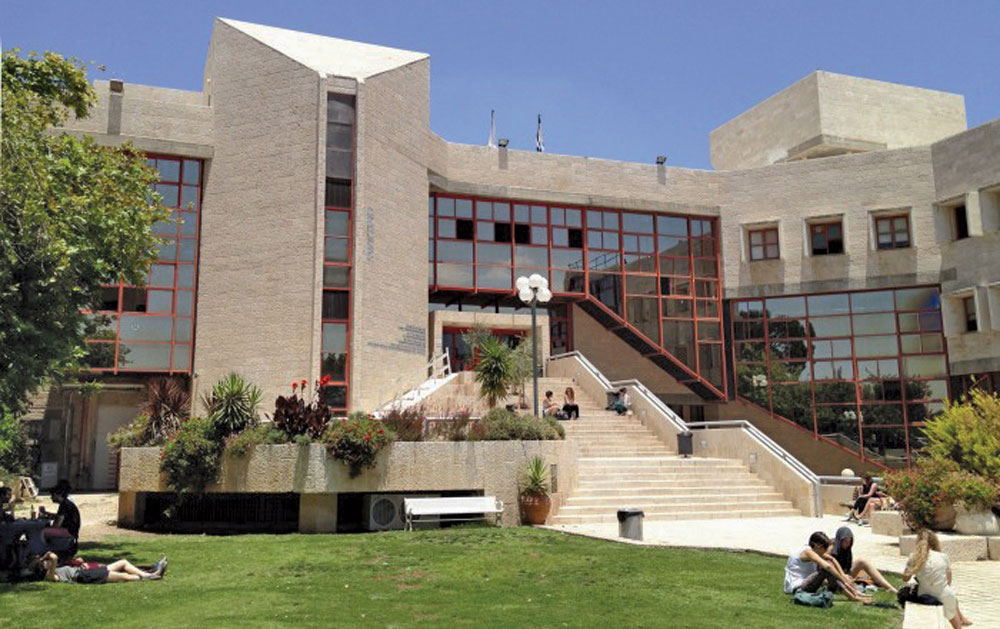
One of Bezalel Art Academy departments today
WORLD WAR I COMES TO PALESTINE
Eliezer and Hemda decided to take a real vacation. They sent the children to the Petach Tikvah settlement to stay with their close friends, and packed a trunk to take to Beirut. But as they arrived in Haifa to board the ship, they found the city in turmoil. Germany had just declared war on France, and England had declared war on Germany and Austria. Banks were closed. They had just enough cash to get back to Jerusalem.
Darkness settled over the Holy Land. The Jews of Palestine were isolated from the rest of the world. Ships stopped coming to her shores. Sugar, rice and kerosene could no longer be purchased. Turks were searching for anyone who could be accused of treason—meaning Zionist activists. It was rumored there was a warrant out for the arrest of their son Ben Zion, who was a known Hebrew-language journalist. They lost contact with their son Ehud who was studying in Germany. Again, Ben Yehuda felt his dream for a national home for his people that was just emerging, was threatened with annihilation. He had trouble concentrating on his research for his dictionary. Hemda was very worried for his health.
Principle Sources:
Fulfillment of Prophecy, Eliezer Ben Yehuda, by Eliezer Ben Yehuda (grandson) 2008; Tongue of the Prophets, The Life Story of Eliezer Ben Yehuda by Robert St. John 1952; https://goo.gl/MVmMUK; https://goo.gl/8r29uN
Other articles in the Ben Yehuda series:
Part 1: Father of the Modern Hebrew Language
Part 2: Eliezer Ben Yehuda: The Visionary
Part 3: The World’s Very First “Hebrew Child”
Part 4: Jerusalem’s Orthodox Jews vs. Eliezer Ben Yehuda
Part 5: Ben Yehuda’s New Virtuous Wife / Eliezer Ben Yehuda Meets Theodore Herzl
Part 7: The Secret to His Success